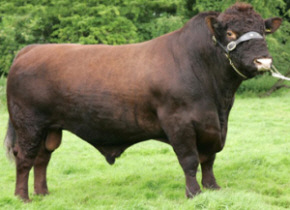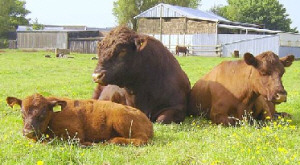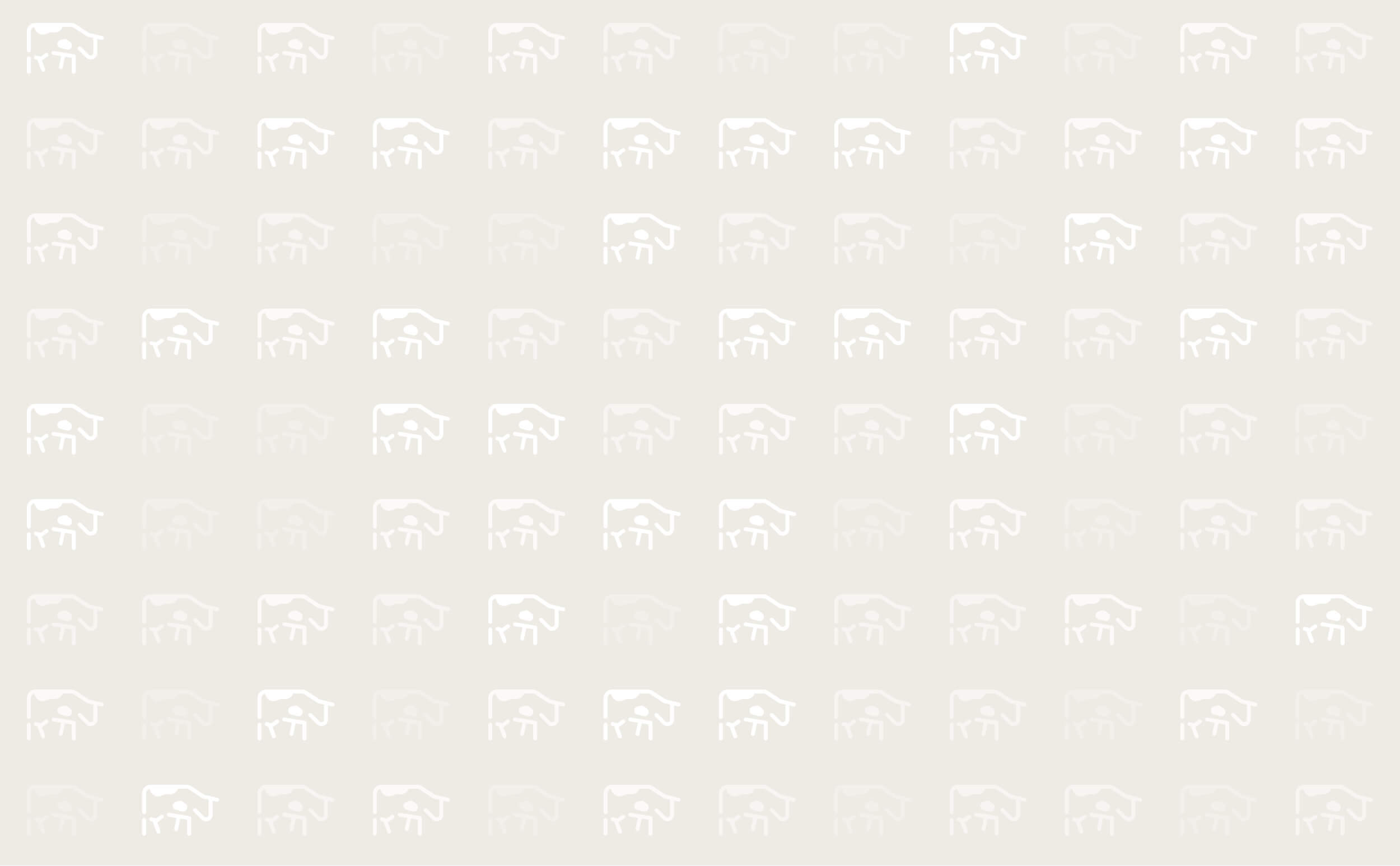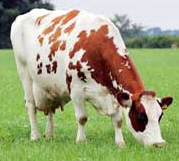



Lincoln Red
History
Lincoln Red cattle originated in the county of Lincolnshire on the north-east coast of England.Little is known about the history of Lincolnshire cattle until 1695 apart from the findings that their genetic base goes back to Bos Urus cattle which were introduced to Britain by Scandinavian invaders between 449 and 660 A.D.
In 1695, the book 'A way to get wealth' by Gervaise Markham mentioned the quality of Lincolnshire cattle.
 Photo courtesy of Hemingby Pedigree Cattle, www.lincolnshirecomputerservices.co.uk |
The earliest record of export is in 1893, the reference by Professor Wallace of Edinburgh University to the founding of "The Argentine Red Lincolnshire Shorthorn Herd Book" From 1904 - 1914, 774 cattle were exported to 20 different countries.
In 1939 Eric Pentecost started selecting cattle for the polled trait and this trend continued till 1960, at this point the society dropped the word 'Shorthorn' from its name and became the Lincoln Red Cattle Society.
In 1946 the Herd Book divided into two sections, although initially dual purpose, selective breeding resulted in two distinct types - beef and dairy. Within the 1950's the emphasis on beef became more marked, last dairy registration in 1965.
With the the importations of continental cattle breeds in the 1970's and 80's the Lincoln Red breed, along with all indigenous British breeds, suffered a loss in popularity. Unbowed, a Breed Development Programme was initiated by the Society. Lincoln Red cows were crossed with selected European breeds to improve conformation and increase lean meat content. This has been carried out extremely sucessfully and, as with polling, the main characteristics of the breed have been retained. This development of the modern Lincoln Red has seen a decline in the traditional native bred 100% Lincoln Red to the extent that this section of the breed is now monitored by the Rare Breeds Survival Trust.
The modern Lincoln Red has all the essential characteristics of a beef breed, but has retained, from its dual purpose days, a high milk yield.
Characteristics
The Lincoln Red is deep cherry red in colour which is uniform across the body, with pink soft skin. The breed has a broad forehead and muzzle, short face and is reasonably large-framed with a rapid growth rate. Photo courtesy of Fenlady Lincoln Reds, www.lincolnred.com |
The cows are hardy, calve easily and have a plentiful supply of milk.
This British breed is outstanding for rapid liveweight gain and early maturity, allied with good carcase quality. It is noted for ease of calving, docility, milking ability and longevity.
Statistics
- The Lincoln Red is an excellent converter of roughage into meat with high growth rates
- A very hardy animal
- A gentle easy to handle breed that make excellent milky mothers
- Long lived
- Crosses well with any breed, especially continental breeds
- Easy calving
- Progeny finish either intensively or extensively
- Producing fine marbled meat renowned for its texture and quality.
Comparative
Compared to the Hereford, the Lincoln Red out performs the Hereford in daily gain and muscularity and has been found to be equal in calving rate, calving ease, calf mortality, calving interval, handling ease, age at sexual maturity (EAAP-Animal Genentic Data Bank, Aug 2001)Distribution
Lincoln Reds have been exported to many countries, including Argentina, Australia, Brazil, Canada, Germany, Hungary, New Zealand, South Africa and the USA.References (the above information was cited from the following sites)
www.lincolnreds.com
www.lincolnshirecomputerservices.co.uk
www.lincolnred.com


